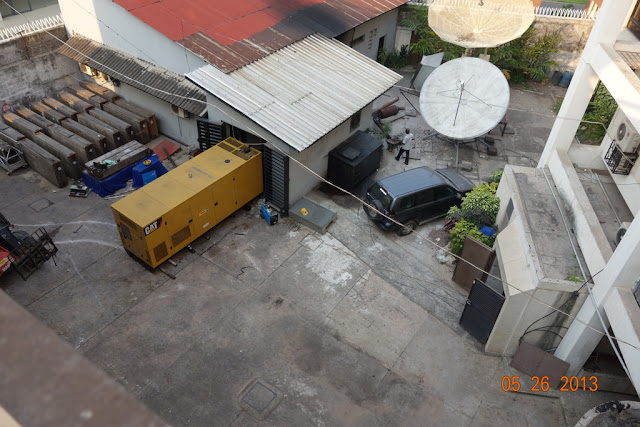View from the front of the meeting area. The dirt floor was neatly swept. Jean Paul began the gathering explaining the reason for the meeting. Olivier explained Interweave and how it can help them become self-sufficient. President Lono talked about the Church and its goals, the benefits it brings, the Book of Mormon, and the Liahona. He gave away copies of both. On our way out, women on the front row complained that they had not heard from the Mundeles, so I explained that we didn't speak Lingala, because each speaker had spoken in Lingala. They said, do it in French. We spoke with them briefly and apologized for not speaking, though I don't know what I would have said, but could have spoken about the Church in general, however I believe that President Lono had already done that well.
|




























































